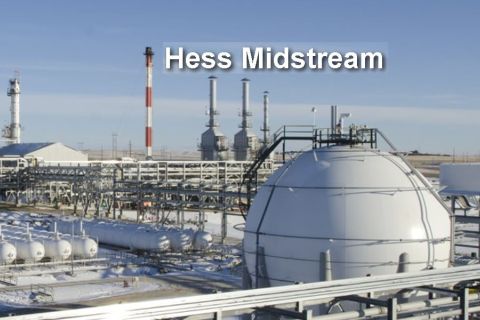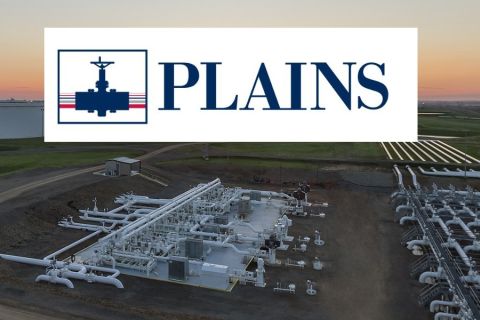U.S. shale producers last year again spent more money than they collected, extending a years-long streak of putting oil output above cash flow and investor returns, according to a Reuters analysis of top independent producers.
All but seven of 29 of these producers last year spent more on drilling and shareholder payouts than they generated through operations, according to securities filings. Total overspending by the group was $6.69 billion in 2018, according to Morningstar data provided to Reuters by the Sightline Institute and the Institute for Energy Economics and Financial Analysis.
While total overspending was down slightly from a year earlier, stock prices in the sector have slid at a time when U.S. share prices, in general, have posted strong gains.
Shale firms are pushing U.S. oil output to record-shattering levels, but companies have prioritized spending on acreage and drilling. The data showed few producers generated solid returns, even as U.S. crude prices rose 28% in 2018 to an average $65.06 a barrel, from $50.79 in 2017.
Stock prices of all 29 shale producers fell in 2018, pressured by volatile crude prices and stronger returns in other sectors. Only one of the 29, Cabot Oil & Gas Corp., traded higher at the end of 2018 than it did two years earlier.
For too many shale firms, generating more cash than they spend is "aspirational," said Lee Tillman, CEO of Marathon Oil Corp. "We’ve got to develop the trust and credibility that we are going to prioritize the shareholder going forward, that this really is a maturing of the shale business over time," Tillman said.
An investor who put $100 into the S&P 500 Oil and Gas E&P Index in 2013 would have had $58.99 at the end of 2018. Similar $100 investments were worth just $9 in Whiting Petroleum Corp., $33.51 in Apache Corp. and $38.88 in Devon Energy Corp., according to financial filings. By contrast, $100 in the S&P 500 grew to $150.33 over the same period.
"This is a critical moment" for shale producers, said Clark Williams-Derry, director of energy finance at think tank Sightline Institute. "They've lost the confidence of the investors."
Oil Shares Lose Luster
Data showed just a few companies collected more than they spent in 2018, including Marathon Oil, EOG Resources Inc. and Continental Resources Inc. Outspenders such as Apache, Carrizo Oil & Gas Inc., Devon Energy, Noble Energy Inc. and Diamondback Energy Inc. were the majority.
So many investors have cut oil and gas holdings, the energy industry's weighting in the S&P 500 index of large publicly traded U.S. companies fell to 5% this year from 11% in 2012.
"I believe the generalist investor returns to the E&P [exploration and production] space but it’s a matter of them having comfort not just with the commodity but with the behavior of management teams," Bob Gwin, president of Anadarko Petroleum Corp., said in an interview.
The shale revolution made stars of independents, which were able to drill and achieve initial production without the years-long investment required of conventional wells. But output from shale wells falls sharply after the first few years, requiring companies to keep drilling.
Some investors believe a shakeout is coming that will separate cash burners from shale companies that can produce more with less investment.
"These exploration and production companies are becoming essentially production companies," said Dimitry Dayen, an analyst at ClearBridge Investments, whose holdings include Anadarko and Pioneer Natural Resources Co. "The focus is on capital efficiency," by cutting spending to a level that allows more cash from stable production.
Using asset sales to fund stock buybacks is no longer enough to please investors, said Tarigh Yusufi, analyst with Steadfast Capital Management, at the CERAWeek conference in March. Companies "need to demonstrate that the asset base can convert into free cash flow," Yusufi said.
Backlog Of Deals
Ben Dell, managing partner at Kimmeridge Energy Management Co. LLC, which has launched activist campaigns against shale firms, believes more than half of U.S. producers must disappear through mergers or sales.
But poor returns and volatile crude prices have slowed deal talks, and also soured investor interest in energy initial public offerings.
"There’s a big backlog of assets people would like to sell," said Andrew Dittmar, an M&A analyst with research firm Drillinginfo.
Deals came to a halt when oil prices dropped about $30 per barrel last fall, and have not fully recovered. "It's hard to say what gets deals moving again," Dittmar said.
Anadarko and Noble Energy were among the shale firms that used proceeds from asset sales last year to repurchase stock—a popular move with investors.
But many shale operators remain on the sidelines as investors insist that anything they buy must already be generating significant cash flows, said Gregory Beard, head of natural resources at private equity firm Apollo Global Management LLC.
EP Energy Corp., a shale producer that spent $245 million last year to acquire South Texas acreage, recently warned of a default if it cannot get additional financing or oil prices do not rise.
"The time when they are given the benefit of the doubt is over," said Beard.
Recommended Reading
Hess Midstream Announces 10 Million Share Secondary Offering
2024-02-07 - Global Infrastructure Partners, a Hess Midstream affiliate, will act as the selling shareholder and Hess Midstream will not receive proceeds from the public offering of shares.
Enterprise Products Partners Ups Quarterly Distribution
2024-04-05 - Enterprise Products Partners said the distribution represents a 5.1% increase over first quarter 2023.
Plains All American Names Michelle Podavin Midstream Canada President
2024-03-05 - Michelle Podavin, who currently serves as senior vice president of NGL commercial assets for Plains Midstream Canada, will become president of the business unit in June.
Matador Completes NatGas Connections in Delaware Basin
2024-03-25 - Matador Resources completed natural gas pipeline connections between Pronto Midstream to San Mateo Midstream and to Matador’s acreage in the Delaware Basin.
Targa Resources Ups Quarterly Dividend by 50% YoY
2024-04-12 - Targa Resource’s board of directors increased the first-quarter 2024 dividend by 50% compared to the same quarter a year ago.





